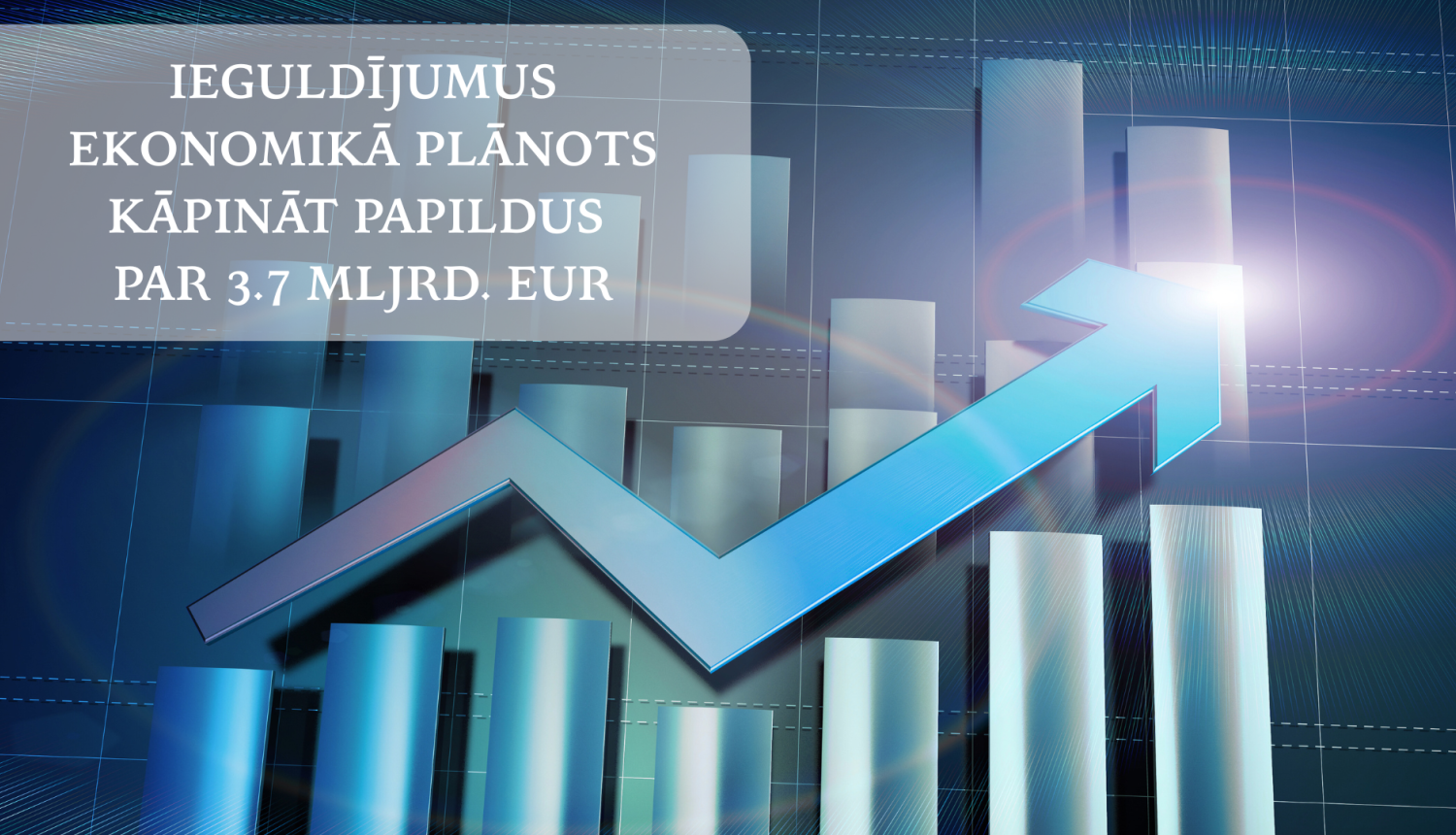Translated using ChatGPT service.
Over the next year, total investments in the Latvian economy are planned to increase by an additional 3.7 billion euros. To achieve this, the availability of funding for entrepreneurs will be significantly improved, and investments will be actively attracted to the national economy.
This is outlined in the new information report “On the Economic Development of Latvia,” prepared by the Ministry of Economics (ME), which was supported by the government on Tuesday, April 22.
1.5 billion EUR is planned to be invested in the form of loans and private investments, 1 billion EUR through investment projects attracted by the Investment and Development Agency of Latvia (LIAA), 0.8 billion EUR as EU fund investments and private co-financing for business development, 0.2 billion EUR as EU fund investments and private co-financing for rental housing and building insulation, and another 0.2 billion EUR as investments in the defense industry.
“To implement the government’s economic goals, the availability of funding for entrepreneurs is significantly improved, and investments are actively attracted to the national economy. The key elements for achieving these goals are strengthening Latvia’s security, developing green industries, regional specialization, and the development of Riga’s potential. There must also be a focus on reducing bureaucracy, improving business productivity and export capacity, reforms in human capital development, the introduction of innovation, new technologies, digitalization, and artificial intelligence, as well as providing modern infrastructure,” emphasized Minister of Economics Viktors Valainis.
In the defense industry, military production capacity must be increased, achieving growth in the volume of investments and the implementation of new research and development projects. In the green industry, a key focus is Latvia’s progress towards becoming a stable electricity exporter, ensuring that Latvian producers and exporters have the lowest electricity prices in the region. To enhance the country’s competitiveness, efforts should focus on regional specialization and the connectivity of regional centers.
To develop more globally competitive companies, a special regulatory environment for artificial intelligence pilot projects should be created, and the wider use of these solutions in the public sector should be encouraged. To ensure fair competition and reduce the cost of living, special attention should be paid to creating equal market conditions for all market participants. At the same time, to develop modern infrastructure and promote housing affordability, plans include reducing bureaucratic barriers to real estate development, promoting the renovation of the building stock, and ensuring its compliance with climate neutrality. Additionally, there are plans to increase the availability of affordable rental housing in the market and ensure the development of transport infrastructure for improving citizen mobility.
This year and next year, growth will be driven by improvements in the global economic environment, an increase in EU fund investments, and the reforms undertaken to strengthen competitiveness. The further development of Latvia’s economy in the medium term depends on the external environment and the progress of reforms.
In the 2024 Growth Strategy, the goal was defined to double the Latvian economy by 2035. The Ministry of Economics forecasts that in the next two years, despite the unfavorable geopolitical situation, the economy will grow by at least 2-3%, and further, as economic reforms "bear fruit," the growth rate will reach 4-5% per year, thus achieving the planned economic growth level.
The information report is a discussion document aimed at discussing alternatives and choosing the optimal solutions to achieve growth. It is a continuation of the information report on the economic development of Latvia adopted by the Cabinet of Ministers on April 30, 2024. The report describes the macroeconomic situation in the country, progress towards growth objectives, and actions in priority economic policy areas.
The policy directions outlined in the report are expected to be debated in the Saeima in early May.



